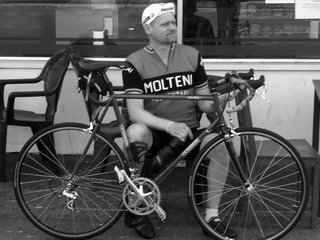To me, the Gardner of The Art of Fiction is a fairly grouchy fiction writer who knows his stuff. What strikes me as really valuable in the text is his thinking about what writers set out to do (he’s talking about fiction writers, but I am going to try to generalize his thinking a bit). He takes as axiomatic that writers have to know the “rudiments” of writing (grammar and, I suppose, paragraph structure and the like). I’m not sure this is always the case but surely it often is. What he follows that contention with is more interesting to me: self-expression does not cause a “writer” to write; rather, it is the desire to produce a kind of writing and an effect that triggers the act of writing. Self-expression, if it happens at all, is a byproduct.
While this is true to my experience, it seems foreign to a lot of the developing writers that work with me. Often students come into my classes with a sense that they will only be able to write something good if they can find a way to express themselves in the text. I rarely am able to convince someone holding this position strongly, to focus instead on working in a genre (the essay, perhaps) or seeking to move a reader or even to create a text that feels one or another way. That said, I am in no way certain that I help developing writers understand what taking on a genre and producing an effect involves; at least I rarely offer genre and effect as compelling aims for writers in a required course.
This begs a question that has followed me around for more than a decade. Are English 101 students “writers” in Gardner’s sense of that word? More importantly, need they be? I have long seen my work in “academic” or civic terms. The point of English 101 is to enable a student practice cultivating arguments and playing with a critical discourse that is used in the college curriculum. I have worked with some version of David Bartholomae’s “Inventing the University” in mind; I came down on Bartholomae’s side in the CCC debate he had with Peter Elbow back in the 90s. But as my tenses here suggest, I am changing my mind. Over the past 17 years, I have taught and written with creative writers, and I am increasingly suspicious that they can help me to complete my view of what I do. They ask writers to work on writing as writing, not as participation in a discourse. While I believe both are necessary, the energy my students need to move into a discourse may just be found in being a writer, as writers (as opposed to critics or rhetoricians) define that role.
Consider Gardner’s offerings in the second chapter of Art.
- Writer’s have to “convince readers” (22).
- The “mainstay” of all fiction (and I add all writing, with some trepidation) is “moment by moment authenticating detail” (23).
- Writers convince readers by establishing an authentic context and voice.
- The purpose of writing (Gardner’s writes “fiction”) is to help us know what we believe by inviting us to enter a dream that is “vivid and continuous” and focused without distraction.
- Writers tend to perceive themselves either as accountants doing exercises or athletes seeking to win competitions (Gardner’s metaphors—no offence to either accountants or athletes).
- Writers develop when they produce for publication.
At one level, there is nothing novel here. Gardner’s manifesto came out in 1984, and he largely consolidates a mainstream approach. In many ways, I have been inviting students to adopt just such a writerly role. At another level, this list is revolutionary or at least transformative. If my students entered college writing courses expecting to practice being writers for eleven weeks, we would live together differently. If they came ready to “plot” out essay in the way Gardner explains plot rather than to learn and implement correct organizational schemes, we would have more fun, write better stuff.
I could write for a long time about why many students do not arrive at college expecting (or even willing) to be writers. Perhaps I will. At this point, I want to think about how to make the invitation to write in ways that are compelling but also challenging.
More on that later.

No comments:
Post a Comment